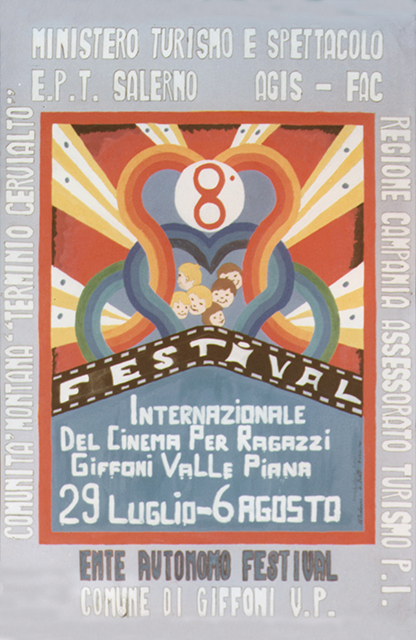Synopsis
Spain, March 1964: Quico is a very naughty child of three belonging to a wealthy middle-class family. Since Cristina's birth, he feels he has lost the privileged position of "prince" of the house for his eight months old sister. So, with his brother Juan, who is eight years old and is quite disobedient, spend their time committing prank after prank, causing the resulting anger of his mother, the nanny and the old housemaid. The rest of the family members are two much older brothers, his resigned mother and a retrograde father of authoritarian ideas. But many years have passed, and the civil war that won the despot Don Pablo is simply for their children "Dad's war".

Sections & Films
DADDY'S WAR
| Original Title | LA GUERRA DE PAPÁ |
| Italian Title | MI SCAPPA LA PIPÌ PAPÀ |
| Category | Official Competition |
| Festival Awards | Best Foreign Language Film (1979) |
| Section | Official Competition |
| Tipology | Feature Film |
| Duration | 96' |
| Production Year | 1977 |
| Nationality | Spain |
| Directed by | Antonio Mercero |
| Screenplay | Horacio Valcárcel, Antonio Mercero |
| Main cast | Lolo García, Teresa Gimpera, Héctor Alterio |
 ANTONIO MERCERO
ANTONIO MERCERO
Spanish director, author of great success TV series and several award-winning films. His father, a staff chief in a local tyre factory, was shot by the anarchists in the Spanish Civil War when he was only 6 months old. His mother wanted him to study Law, and that's what he did. He starting studying at the University of Valladolid, but that wasn't his real vocation, which was, as he himself says, 'to tell stories'. Every summer he used to go back to Lasarte, his home village, and make festivals, sketches and parodies. Once he finished his Law studies, in 1959, he decided to enter the Escuela Oficial de Cinematografía, where he made four short films: 'La oveja negra', 'Pis', 'La muerta' and Trotín Troteras (1962). In 1962, after finishing his cinematographic studies, he directed his first work as a professional, Lección de arte (1961), and it won the Golden Seashell at the Festival of San Sebastián. His first attempt to make a feature film ('Está lloviendo y te quiero', about his childhood at the Basque Country which also touched on the Basque problems) failed due to the refusal of the Basque producers, and so he continued directing short films: 'La balada de los cuatro jinetes', 'Universidad de Navarra', 'Un pueblo en apuros', 'Adiós al Price'.
In 1970 he started working for TV. He directed several documentaries and some chapters for the series Crónicas de un pueblo (1971) (a great success in Spain despite its deep ideological content, risky for the period it was made in) and, Cabina, La (1970) (TV), which won 10 national and international awards, including the Emmy Award in 1973. Then he made Pajaritos, Los (1973), Don Juan (1974) (which won an award at the Festival of Montreux), Gioconda está triste, La (1975), the series "Ese señor de negro" (1975), La noche del licenciado (1978), and his two biggest successes: "Verano azul" (1978).






